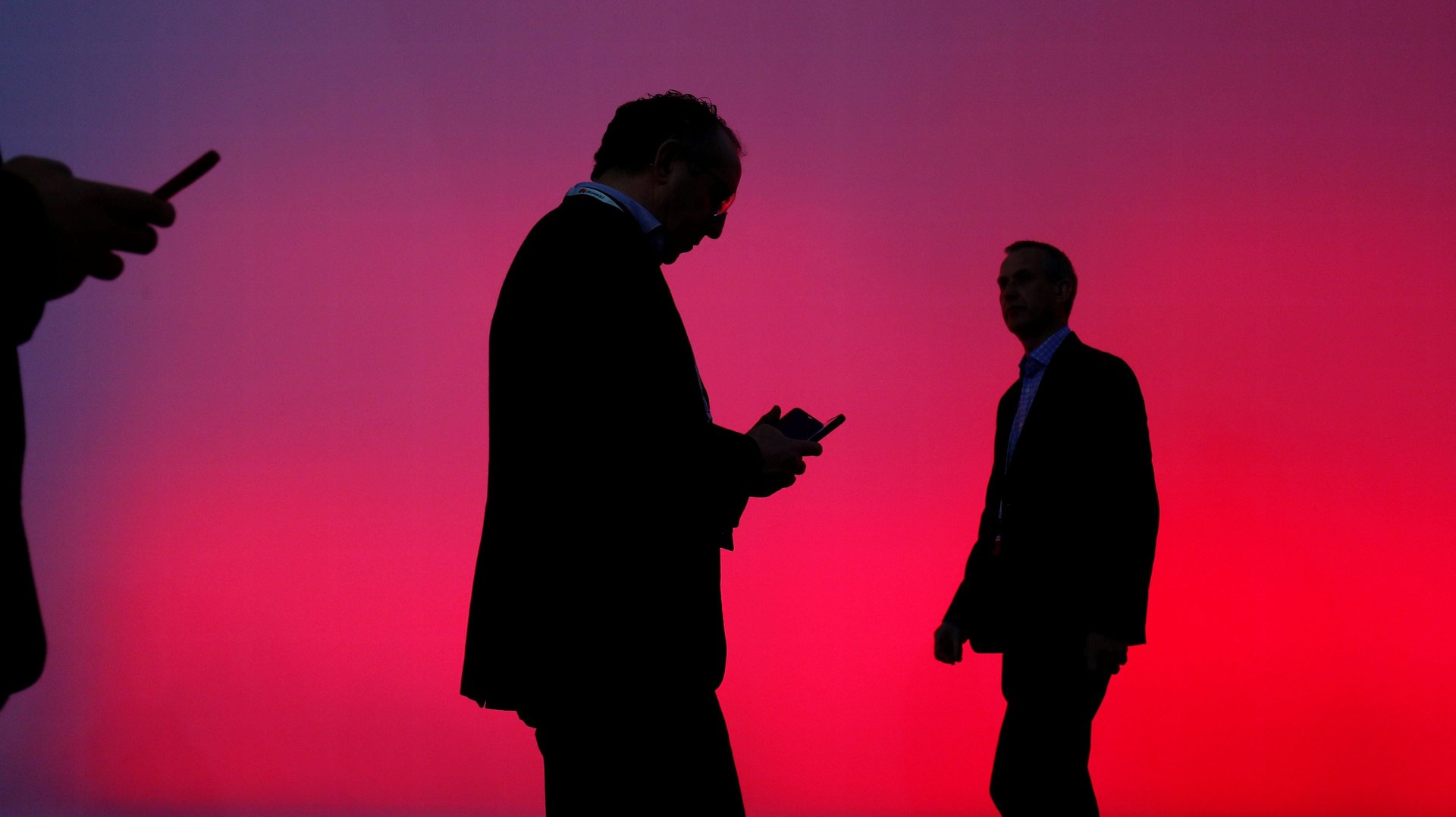The battle for work/life balance is lost. The war for device/non-device balance has just begun
Every year around this time, Barcelona becomes the center of the mobile world. More than 100,000 people from the tech and telecoms industries gather at Mobile World Congress to see the latest devices and hear about the newest developments in network technology.


Every year around this time, Barcelona becomes the center of the mobile world. More than 100,000 people from the tech and telecoms industries gather at Mobile World Congress to see the latest devices and hear about the newest developments in network technology.
The chatter this year was all about 5G—the next-generation cellular connections that will provide ultra-fast, ubiquitous wireless coverage—and high-end smartphones with bendy screens that fold out into a tablet.
More, better, faster: What else would you expect?
But just under the surface, some delegates expressed a low-level anxiety: As we worry about the effects of excessive screen time, should we be so eager to tout fast, powerful phones with even more screen to spend time with?
The downsides of mobile-device dependency on mental health, especially for kids, are increasingly well documented. Mobile World Congress is not, however, where you’d expect them to be aired. And yet, “Digital Wellness” was a thematic track in panel discussions.
On the sidelines, unlikely figures expressed somewhat heretical views to me about the dangers of the devices they were promoting. “I’m reminding people that there are moments and situations when you should do something else than using your mobile,” said Pekka Rantala, chief marketing officer for HMD, the handset maker that licenses the Nokia brand.
Screen time-tracking features recently added to smartphones suggest a shift in thinking is underway. Tech execs’ personal actions, especially when it comes to their own children’s device use, are also telling.
Some think that voice-activated assistants are a better way for people to be more present in their daily lives without disconnecting entirely. On the other end of the spectrum is augmented reality: Whizzy new headsets unveiled in Barcelona hint at a future in which everything we see is mediated by a screen.
Getting tech companies to encourage customers to practice mindful moderation won’t be easy, said Mark Curtis, founder of design consultancy Fjord. “The work/life thing is gone,” he noted. “We should be focusing on device/non-device balance.” If he’s right, breathless pitches about “immersive” technology experiences may also need to acknowledge the risks of destructive digital distractions.
This post was originally published in the weekend edition of the Quartz Daily Brief newsletter. Sign up for it here.